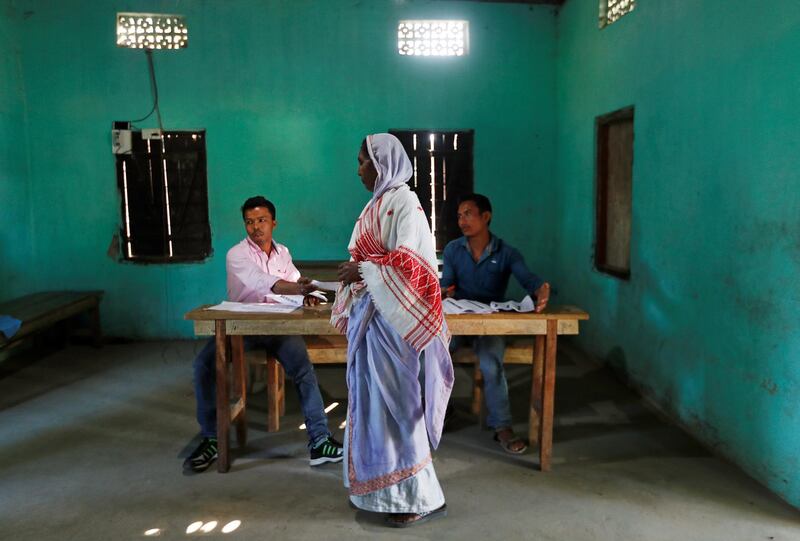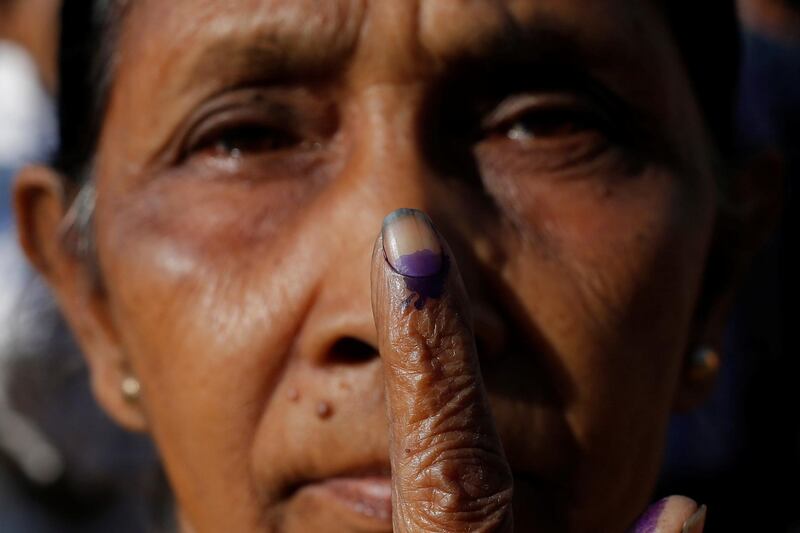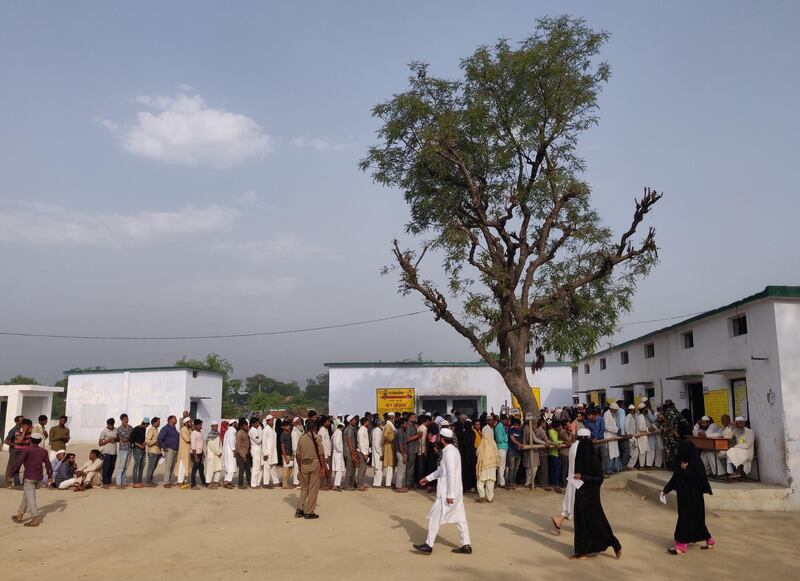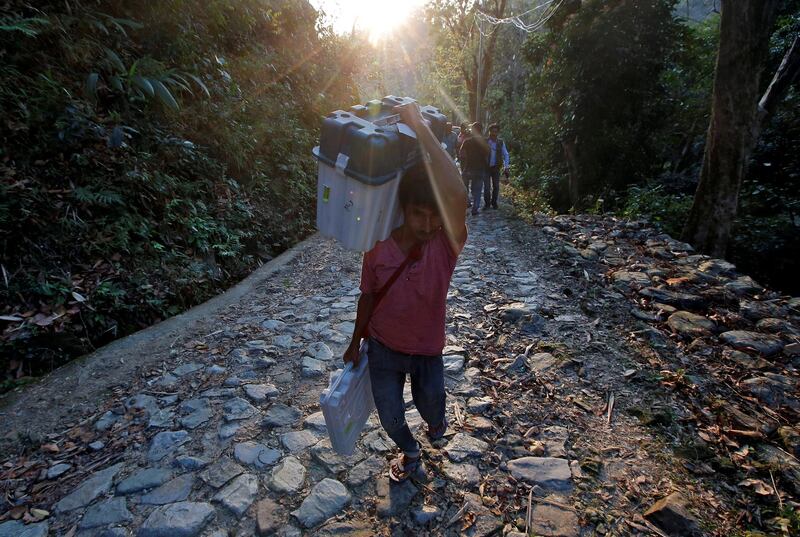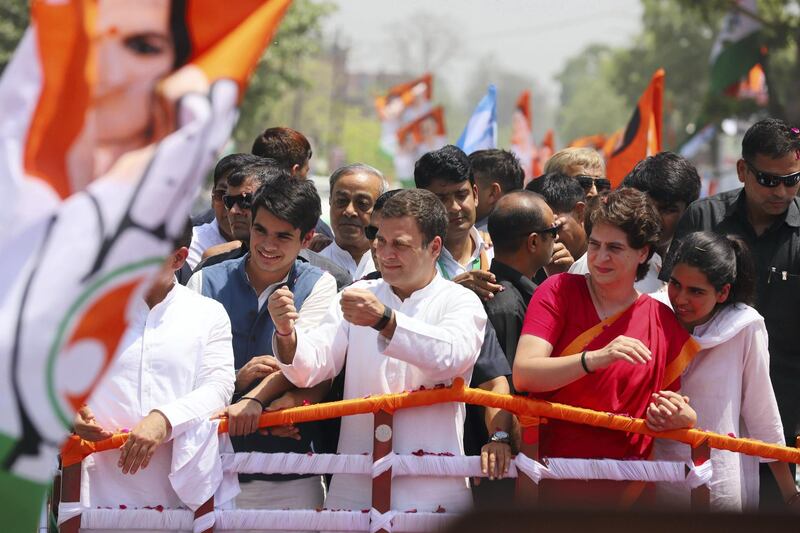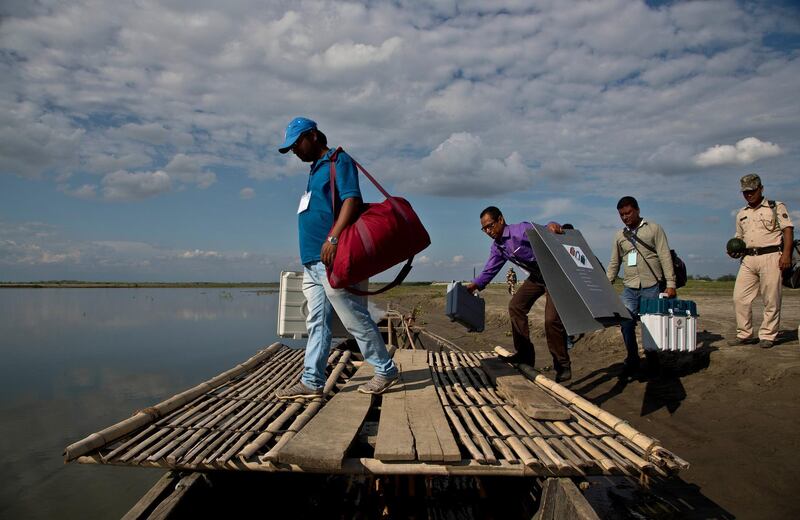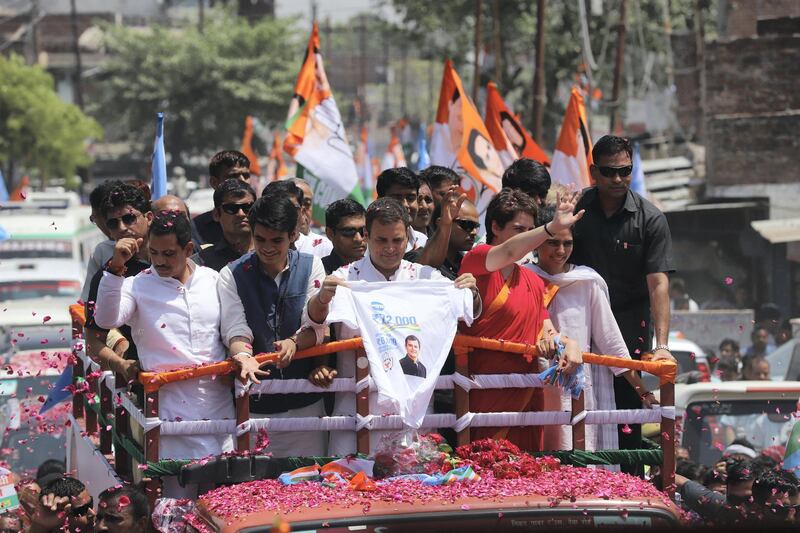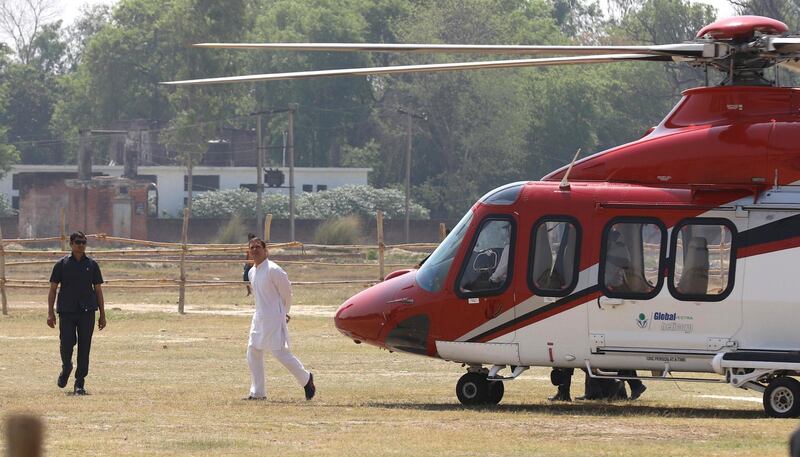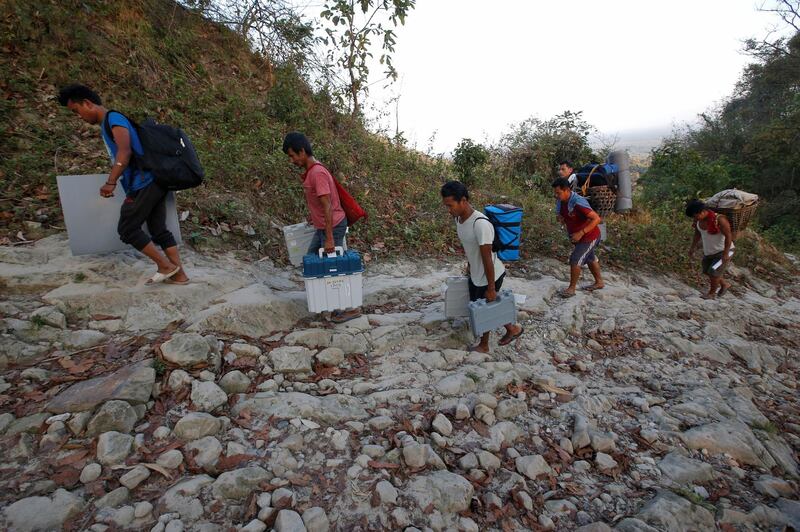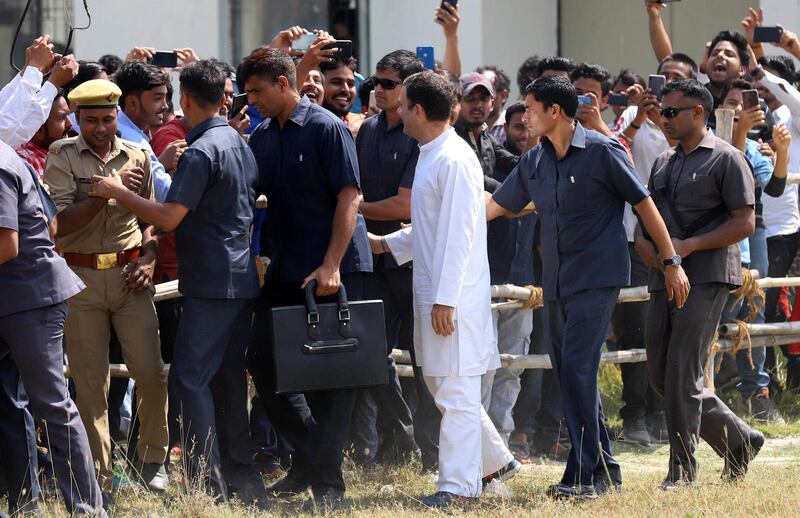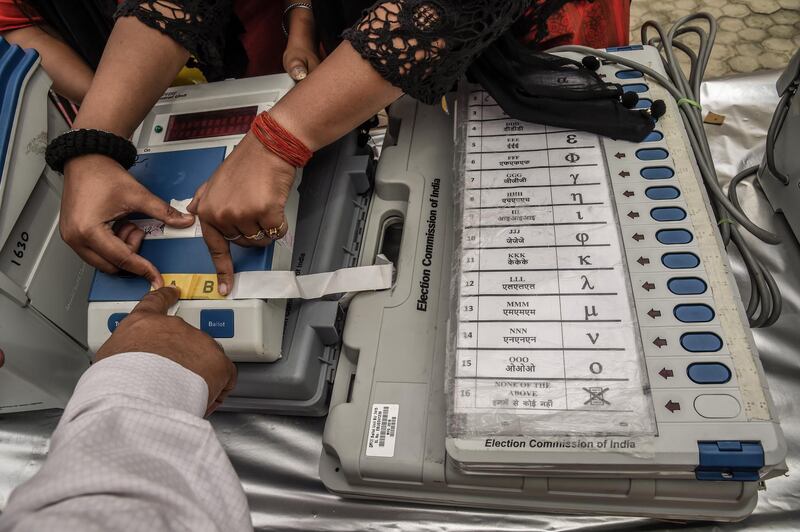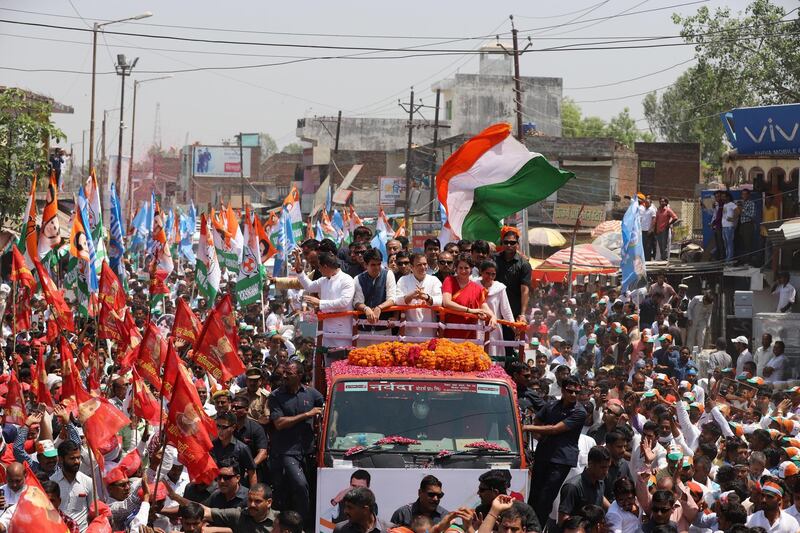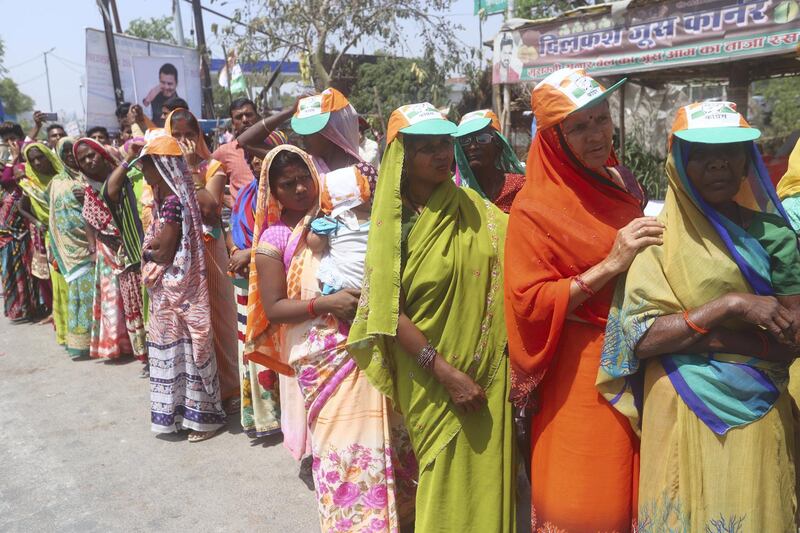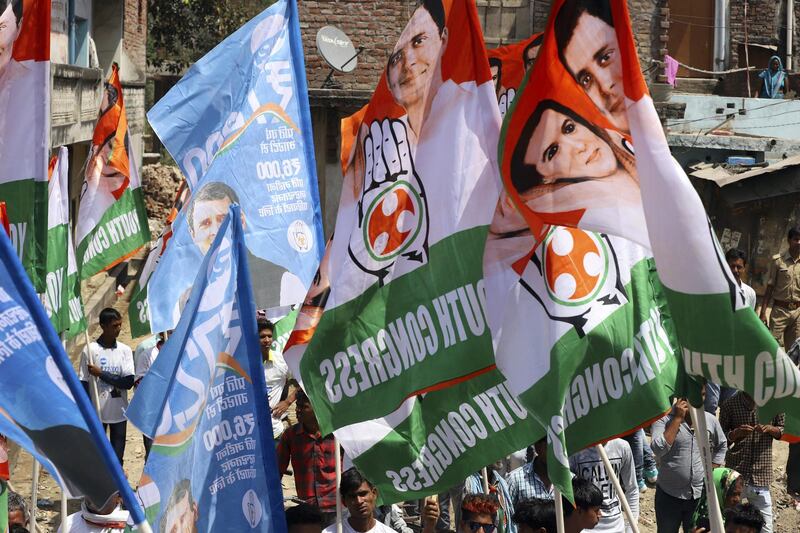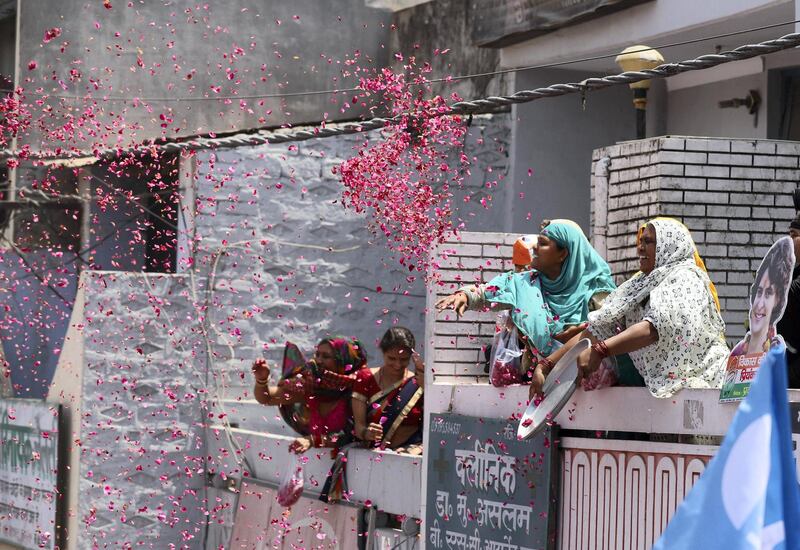The first of seven stages in India's parliamentary elections will begin on Thursday with 91 constituencies across 20 states going to the polls to elect their MPs.
It is the largest democratic exercise in the world, requiring the vote to be split across seven days and two months.
Incumbent Prime Minister Narendra Modi is seeking a second term in office but faces a grassroots challenge from Rahul Gandhi, the leader of the Indian National Congress.
Here you will find the latest breaking news, analysis and reporting from The National.
(All times UTC+4)
_______________
06:37 A picture perfect poll: child-control, plastic-free and orderly queuing
What is the perfect polling station, if there is one? Well, the Electoral Commission of India's spokesperson says it might be in Zunheboto in Nagaland.
An orderly polling station to say the least! A free creche allows mothers with young children to leave their kids to vote, while free drinking water, not using plastic cups, keeps exercising citizens hydrated.
Model polling station in Zunheboto, Nagaland. Voters with tokens in waiting room , creche facility , plastic free, drinking water provided pic.twitter.com/7truXzs8LH
— Spokesperson ECI (@SpokespersonECI) April 11, 2019
_______________
06:10 Dozens of voters queue to be first
India's Electoral Commission awarded five medals to the first five voters in a rural village in the Khasi Hills in the northwest of the country.
Dozens of people can be seen waiting outside polling stations across the country.
First phase Polling has commenced in poll going states in the GE to LS 19. Images of First five early voters with First to vote medals in rural West Khasi Hills PS, Meghalaya coming in pic.twitter.com/bqWSeOtEyt
— Spokesperson ECI (@SpokespersonECI) April 11, 2019
_______________
05:45 Narendra Modi urges young people to vote
India's Prime Minister urged young and first-time voters to turn out in the first stage of India's elections.
Mr Modi has created a cult of personality around him and his brand, but the Indian National Congress has had greater popularity with young people.
2019 Lok Sabha elections commence today.
— Narendra Modi (@narendramodi) April 11, 2019
I call upon all those whose constituencies are voting in the first phase today to turn out in record numbers and exercise their franchise.
I specially urge young and first-time voters to vote in large numbers.
Meanwhile, BJP president Amit Shah said, "the power of democracy lies in your single vote, your one vote will decide the future of this great nation."
As the voting for the first phase of the 2019 Lok Sabha elections will begin today, i request each and every voter to come out and vote. The power of democracy lies in your single vote, your one vote will decide the future of this great nation.
— Amit Shah (@AmitShah) April 11, 2019
But the BJP's main opposition, the Indian National Congress was silent on Twitter as voting began. The BJP has run a social-media-savvy campaign, but have also been accused of hashtag influencing (using bots to make favourable hashtags trend) and a large pro-BJP Facebook page was taken down for what the company called "co-ordinated inauthentic behaviour".
[ Read how Facebook removed pages advocating for the BJP and INC here ]
_______________
05:30 Voting begins in first stage of India's election
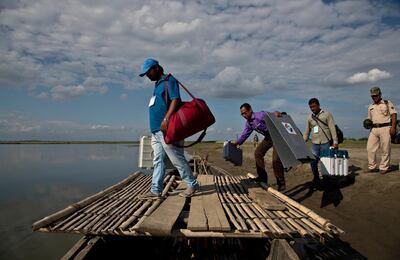
At 7am local time, voting began in India's parliamentary election, the world's largest democratic exercise and an opportunity for Indian Prime Minister Narendra Modi to seek a second term.
Voting in the first of seven rounds will be held in 91 parliament constituencies across 20 states and federally-administered regions. There are 543 seats at stake in total.
_______________
First-time voters say they feel let down by Modi
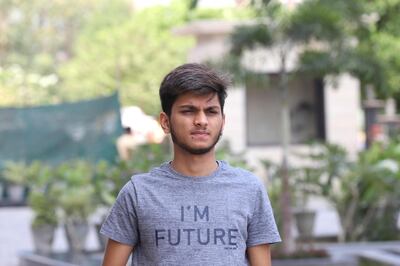
India’s first-time voters say they feel let down by Prime Minister Narendra Modi and the rise of Hindu nationalism as the country heads to the polls on Thursday.
Yamaan Husain, from the state capital Lucknow, applied for his voter card the day after his 18th birthday last week. His enthusiasm to vote has been dulled, however, by his concern that religion has dominated the national discourse.
“You are born into your religion, but you are a human being – no one should be judged as different because they follow a particular religion,” said the teenager, who plans to go to university later this year to study aeronautical engineering.
“This is a secular country and it’s not right to hurt people who follow Islam as their religion.”
[ Read Ramola Talwar Badam's full report from Uttar Pradesh here ]
_______________
Modi biopic banned from Indian cinemas until after voting ends
India's electoral commission has banned a biopic of its Prime Minister Narendra Modi until after the country's parliamentary elections, officials said on Wednesday.
The film, titled PM Narendra Modi, has been criticised for grossly extolling the virtues of the Bharatiya Janata Party leader.
ECI invokes powers under Article 324 to prohibit display/exhibit any biopic/publicity material during MCC period https://t.co/uWsmcyWNLM
— Spokesperson ECI (@SpokespersonECI) April 10, 2019
The film was scheduled for release on Thursday to coincide with the first day of voting in the seven-stage process.
Read more about the Modi biopic
_______________
Opinion: Is Modi's cult of personality strong enough to see him through?
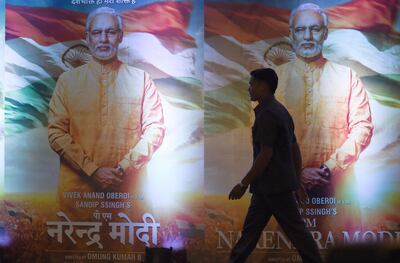
Over the BJP and India looms one man, Prime Minister Narendra Modi, whose biggest task this election is to convince Indians he is indispensable to the nation's security and economic prospects.
It is not yet clear if Mr Modi can pull it off. There have been mutterings of dissent within his party. On April 6, the day the BJP was co-founded by him back in 1980, the party’s elder statesman L K Advani publicly delivered what seemed to be a rebuke of Mr Modi’s stewardship of his political project.
[ Read Rashmee Roshan Lall's full opinion piece here ]
_______________
Key points from the BJP Manifesto
Indian Prime Minister Narendra Modi on Monday sought to woo Hindu voters and farmers with an election manifesto he hopes will help him seal a second term in office.
Mr Modi's right-wing Bharatiya Janata Party (BJP) outlined its key policies in the document released with fanfare in New Delhi, balancing nationalist policies with development promises, three days before elections begin.
- Building a grand temple for the Hindu god Ram "as soon as possible in a harmonious way"
- Pass a citizenship bill that would grant Indian nationality to Hindus from neighbouring countries
- Spend more than $300 billion (Dh1.1 trillion) on rural development
- Extend an annual handout of 6,000 rupees (Dh320)
- Introduce a pension scheme for small and marginal farmers
- Promised to reserve 33 per cent of seats in parliament and state assemblies for women
_______________
_______________
Who are the main parties in India's election?
The Bharatiya Janata Party
The BJP’s star campaigner has been Mr Modi himself. He has decided to seek re-election from Varanasi, the ancient seat of Hindu spirituality in Uttar Pradesh.
The prime minister’s real challenge lies in addressing other parts of the country, and in “getting voters to overlook the state of the economy and give it another five years to tackle bread-and-butter issues that Indians care about like jobs, agricultural prices, and livelihoods,” said Milan Vaishnav, the director of the South Asia programme at the Carnegie Endowment for International Peace in Washington DC.
India’s unemployment rate, according to leaked government data, is around 6 per cent, the highest in four decades.
The Indian National Congress
In 2014, after running the government for two successive terms, the Congress won a mere 44 seats in the Lok Sabha, the lower house of parliament. It was the lowest-ever tally for India’s grand old party, hit as it was by numerous corruption scandals.
Its best bet to oust the BJP is to play kingmaker, gathering together parties in a post-election coalition to form the government.
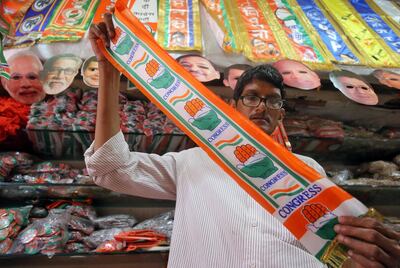
Rahul Gandhi has been vocal in his criticisms of Mr Modi but has had to build his image painstakingly.
“He has become more consistent, diligent and effective, [but] he is still no match for Modi as far as his popularity or charisma are concerned,” Mr Vaishnav said. “When it comes to ideas, the Congress has relied far too heavily on articulating what the BJP has done wrong, as opposed to what it would do if it were given a shot at power.”
The Federal Front
In the northern state of Uttar Pradesh, the two strongest regional parties, the Samajwadi Party (SP) and the Bahujan Samaj Party (BSP), have put past tensions behind them and partnered in an explicit bid to defeat the BJP.
The SP and BSP are part of a larger nationwide coalition of 15 parties, called the Federal Front. They differ on ideologies, being united purely in their desire to unseat Mr Modi and the BJP.
The lack of a coherent shared agenda and the inevitable struggles for power and influence in the event of they come out top might doom the Federal Front altogether.
The Aam Aadmi Party
In 2014, the Aam Aadmi Party (AAP) was an upstart band of activists and outsiders who had formed less than two years earlier and ran on a platform of honest governance, but to little success.
The AAP has allied with the Congress in an attempt to defeat the BJP – yet another marriage driven by the arithmetic of voter bases.
The alliance is, in itself, a sign of how the AAP has scaled back its ambitions. In 2014, Mr Kejriwal loudly portrayed his party as a national-level alternative to the BJP and the Congress.
This time around the AAP has more manageable goals: to elect its candidates running in its home base of Delhi; to maintain its presence in Punjab, where it won four Lok Sabha seats in 2014; and to expand its reach in the state of Haryana, adjoining Delhi.
[ Read the full story, with additional analysis here ]
_______________
Who are Indians electing?
The main vote is for the Lok Sabha, which has 545 seats, but two of these are reserved for the Anglo-Indian community – people of Indian-European ancestry – and filled by presidential nomination.
Voters in Arunachal Pradesh, Andhra Pradesh, Odisha and Sikkim will also be electing their state legislatures.
The upper house of parliament, or Rajya Sabha, is elected separately by members of state legislatures.
Who will challenge Narendra Modi and the BJP?
The Bharatiya Janata Party of Prime Minister Narendra Modi and its partners in the National Democratic Alliance are widely expected to win the election again, but not by the landslide they achieved in 2014 when the BJP even secured a majority in its own right.
The Congress party, headed by Rahul Gandhi, which has won 10 of India's past 15 elections either outright or in an alliance, is seeking a return to power after being humiliated in 2014. However, there is third force challenging to form the next government in the form of a "mega-coalition" of smaller parties, including former rivals, that have come together with the goal of unseating Mr Modi.
What are the polling dates?
The election has been broken up as follows:
April 11: 91 constituencies in 20 states
April 18: 97 constituencies in 13 states
April 23: 115 constituencies in 14 states
April 29: 71 constituencies in 9 states
May 6: 51 constituencies in 7 states
May 12: 59 constituencies in 7 states
May 19: 59 constituencies in 8 states
When will the results be known?
The counting of votes will begin on May 23, four days after the last round of voting, and is expected to be completed on the same day.
